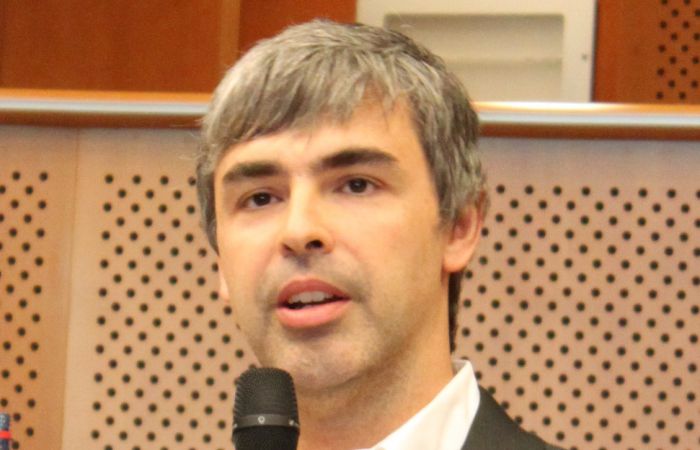Google skips Congressional hearing, potentially making a “strategic mistake of virtually incalculable proportions”; Jon Kyl’s “ethical baggage”; new research finds telecom companies are slowing Internet traffic to and from YouTube and Netflix; and where do economists stand on market concentration?

- Facebook COO Sheryl Sandberg and Twitter CEO Jack Dorsey testified before the Senate Intelligence Committee this week (Dorsey also appeared before the House Energy and Commerce Committee), defending their companies’ records against charges of anti-conservative bias and promising to combat attempts by foreign actors to meddle in US elections using their platforms. In the New York Times, Farhad Manjoo covers the hearings, which, he writes, “helped underscore the difficulties lawmakers will face in figuring out ways to ensure that tech companies are guarding people’s political freedoms and privacy while protecting their services from those who would spread misinformation and propaganda.” In The Intercept, Sam Biddle fact-checks one part of Sandberg’s testimony: her proclamation that Facebook is committed to the democratic values and “would only operate in a country where we could do so in keeping with our values.” This, Biddle writes, is false: “In its latest publicly available ‘transparency report,’ Facebook says it helps block free expression as a matter of policy—so long as it’s technically legal in a given market,” he writes. (On a related note, a piece by BuzzFeed’s Davey Alba explores how Philippine President Rodrigo Duterte used Facebook to fuel his bloody “war on drugs.”)
- Alphabet CEO Larry Page was notably absent from the Senate hearing, though he’d been invited by the committee. Instead, his absence was acknowledged with an empty chair marked “Google.” Google’s decision to skip the Congressional hearing, despite facing the most intense public and political scrutiny in all of its 20 years, was criticized by both lawmakers and commentators. “Given its size and influence, I would have thought the leadership at Google would want to demonstrate how seriously it takes these challenges and to lead this important public discussion,” said Sen. Mark Warner (D-VA), the ranking Democrat on the committee, in his opening remarks. “Google’s absence means a major puzzle piece was missing from the hearing,” wrote Alfred NG in CNET. In The Verge, Russell Brandom writes that’s Google decision to not show up was a “strategic mistake of virtually incalculable proportions.” With the new FTC commissioners in place, he writes, “multiple complaints against Google are expected to arrive in the coming weeks, making the case that Google’s dominance in search and online advertising have anticompetitive effects.” Brandom also has a long and excellent breakdown of the antitrust case against Google, Amazon, Facebook, and Uber.
- With regulators and Congress gearing up to take on Big Tech platforms, Google seems particularly vulnerable.While the company keeps promising that it is taking measures to protect its ad platforms against foreign meddling, reports BuzzFeed, researchers from the advocacy group the Campaign for Accountability posing as Kremlin-linked Russian trolls managed to run divisive political ads aimed at American voters without any problems, spending just $35 in the process.
- In what could be a serious signal of upcoming federal action against tech platforms, the Department of Justice said this week that Attorney General Jeff Sessions “has convened a meeting with a number of state attorneys general this month to discuss a growing concern that these companies may be hurting competition and intentionally stifling the free exchange of ideas on their platforms.” A week after President Trump accused Google of rigging search results against conservative news outlets and said tech giants like Google, Facebook, and Amazon may be in a “very antitrust situation,” this week’s announcement could herald more serious action beyond the occasional Trump tweet, according to Business Insider’s Shona Ghosh.
- Of course, any legislative action regarding Google’s and Facebook’s data collection is unlikely, seeing as how US politicians are “addicted to Big Data like it’s campaign cash,” explains Slate’s April Glaser.
- As the tenth anniversary of Lehman Brothers’ collapse rapidly approaches, former Fed chairman Ben Bernanke and former Treasury Secretaries Timothy Geithner and Hank Paulson—the trio that oversaw the federal response to the 2008 financial crisis—argue in a New York Times op-ed that in its post-crisis reforms, “Congress also took away some of the most powerful tools used by the FDIC, the Fed and the Treasury” to curtail the effects of the crisis. The Economist contends that the “world has not learned the lessons of the financial crisis.” Lehman’s former CEO Dick Fuld, meanwhile, seeks to redeem his reputation, while Lewis Ranieri—the “father of mortgage-backed securities”—has more than a few regrets about the role he played in the run-up to the crisis.
- As Supreme Court nominee Brett Kavanaugh’s confirmation hearings dominated news headlines, lobbying groups kept spending millions trying to convince voters to support or oppose him, with supportive groups outspending the opposition nearly four to one. In The Hill, Sandeep Vaheesan examines Kavanaugh’s record and past decisions and finds that “Kavanaugh is hardly a clear-eyed, neutral one when big businesses are at bat. If he makes it to the Supreme Court, regular Americans should expect Justice Kavanaugh to grant corporations more power over our lives.” In Slate, April Glaser and Richard L. Hasen explain why Kavanaugh’s very likely confirmation would be bad news for the open Internet and for anyone concerned about the influence of money of American politics.
- Jon Kyl, the former senator and Covington & Burling lobbyist appointed by Arizona governor Doug Ducey to fill in John McCain’s Senate seat, said this week that his lobbying experience would not affect his actions as a senator and that he would sever ties to his former clients. But his extensive lobbying work still means that Kyl “brings with him some ethical baggage, in the form of numerous high profile corporate clients with extensive business before the Senate body that he now re-joins,” argue Lachlan Markay and Sam Stein in the Daily Beast.
- Despite their recent public disagreements around immigration and trade policies, the Trump administration and the Koch brothers are “working in concert” to achieve the same policy goals, argues the New York Times columnist Thomas B. Edsall.
- Amazon CEO Jeff Bezos made his biggest campaign contribution yet, donating $10 million to the With Honor Fund, described by the New York Times as “a so-called super PAC that supports military veterans running for Congress who vow to take a cross-party approach to governing.” Bezos is also currently pursuing a $10 billion Pentagon contract to move all of the Defense Department’s data to the cloud, notes Alex Kotch in Sludge.
- Less than three months after the Obama-era net neutrality rules officially ended, new research from Northeastern University and UMass Amherst finds that the largest US telecom companies are slowing Internet traffic to and from popular apps like YouTube and Netflix, reports Bloomberg.
- “The new antitrust crusaders are experiencing a tailwind from an unlikely ally—the economics profession,” writes Bloomberg’s Noah Smith in an overview of recent research into the effects of market concentration. “Overall, economists are growing more concerned about the threat posed by corporate power. The budding antitrust movement will offer them valuable ideas, data and intellectual heft in its quest to stem the rampant power of industrial giants.” Meanwhile, The Economist covers the annual Federal Reserve’s Jackson Hole policy conference, which focused on the effects of market concentration. Is market concentration a cause for concern, or simply a change in the nature of competition? “Unsurprisingly, given the number of economists assembled, the only point of agreement was on the need for more evidence,” the magazine concludes.
- In The Atlantic, Annie Lowrey examines the Uberization of the heavily concentrated poultry industry—where many small growers are now effectively contractors, “so controlled by their agreements with giant food corporations that they no longer act like independent entities”—and what this says about US wage stagnation and income inequality.
- From the Wall Street Journal: The Justice Department is preparing to clear the CVS-Aetna and Cigna-Express Scripts mergers in the next few weeks.
- Apple’s takeover of Shazam has been cleared by European regulators, who said “access to Shazam’s data would not materially increase Apple’s ability to target music enthusiasts and any conduct aimed at making customers switch would only have a negligible impact.”
- Yet another study, this time by the Federal Reserve, shows that US corporations are spending their windfalls from the GOP’s tax cuts on share buybacks, instead of on new jobs or investments.
Chatter from the Ivory Tower
- The American Economics Association has launched its answer to the racism- and misogyny-plagued EJMR: EconSpark, a moderated forum “to foster a community where participants can learn from and advise each other in a safe environment.”
Stigler Center Goings-On
- As economists experience their first major #MeToo moment, Capitalisn’t hosts Kate Waldock and Luigi Zingales explore the larger implications of a recent case involving a Columbia University professor who was found liable for retaliation against a junior faculty member.
- For the 10th anniversary of the bankruptcy of Lehman Brothers, the Stigler Center and the Initiative on Global Markets (IGM) are organizing a conference on the causes, as well as the key players and mechanisms, of the 2008 financial crisis. Details here.
Disclaimer: The ProMarket blog is dedicated to discussing how competition tends to be subverted by special interests. The posts represent the opinions of their writers, not necessarily those of the University of Chicago, the Booth School of Business, or its faculty. For more information, please visit ProMarket Blog Policy.






